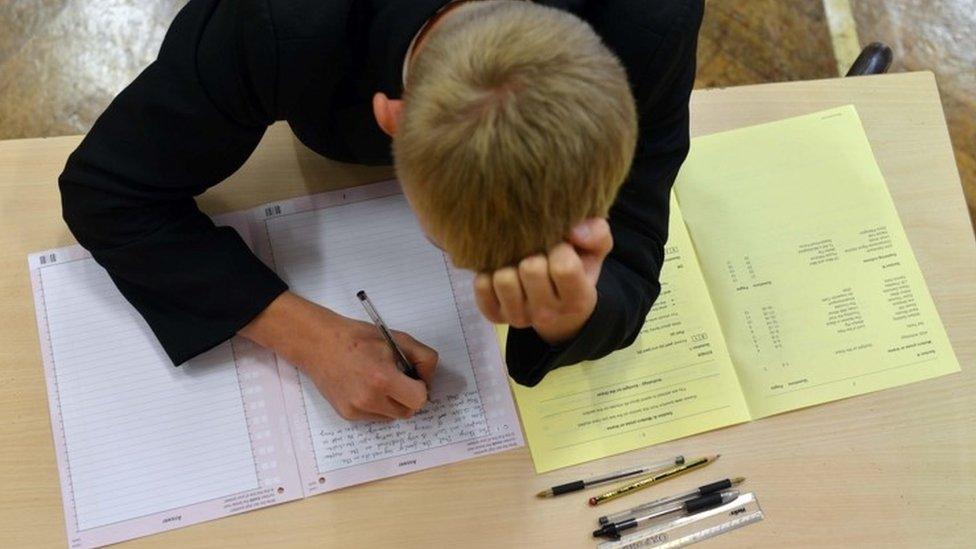School week changes in Wales could save money, report says
- Published

Changing the school week to four longer days and a half day could save money, a report has said.
The Public Policy Institute for Wales (PPW), external said the move could offer training opportunities for teachers and give children more free time.
But concerns include childcare access and transport availability.
The Welsh Government said it was "not proposing a national policy for a four-and-a-half day school week" but was considering the report's findings.
The report, commissioned by former Education Minister Huw Lewis, said while there was some anecdotal information about the potential advantages and disadvantages there was very little research on the impact.
Those in favour of the system suggest the shorter fifth day would allow for more free time for pupils, which they could spend with family and friends, on after-school activities or attend appointments without missing lessons.
Advocates also suggest it could improve staff well-being and free-up teachers for more training time.
But the report also said school staff with children attending schools which do not use the system might have issues with childcare, and that longer days could make pupils more tired.

Cerian Rolls, a mother-of-three and a part-time teacher from Aberdare, Rhondda Cynon Taff, told BBC Radio Wales she was not convinced as a working parent by the arguments for longer school days.
"To make the day potentially longer at both ends could put a strain on those working parents who are struggling like myself to get childcare," she told the Good Morning Wales programme.
Ms Rolls added that many parents would be sorry if longer school days meant children had less opportunity to enjoy after-school activities.
NUT Wales policy officer Owen Hathway told the programme he would be "wary" of such changes, and felt there was not yet enough evidence from other countries to show that they worked.
"There's an issue on those longer days that children might become fatigued," he said.
"As you come to the end of those longer afternoons you're not getting as productive a lesson as you could potentially have."
Some schools in Scotland have already adopted an asymmetric school week in response to an anticipated budget cuts, with an earlier finish on Friday.
The report said the move had resulted in the more effective use of teachers' time and a better use of resources, which would help schools respond to further budget cuts if they come.
'Innovative'
A Welsh Government spokesman said: "We are not proposing a national policy for a four-and-a-half day school week in Wales.
"The PPIW have been asked to explore how evidence and research can support us to improve policy and practice in Wales and find new and innovative ways of doing so.
"They have presented us with a range of ideas and we should consider them all in detail, as we continue to focus on ways to raise standards in our schools and aspirations for all our pupils and young people."
Plaid Cymru's Shadow Education Secretary Llyr Gruffydd also said that experience in Scotland showed the four-and-a-half day week "can be made to work, creating space in the school timetable for pupils to broaden their extra-curricular experiences and for professional development opportunities for staff".
He added that Plaid would also look at the structure of the school year, saying: "Teachers tell us that introducing shorter terms and more frequent holidays would lead to improved educational outcomes for children."
Darren Millar, education spokesman for the Welsh Conservatives, was against changing school hours.
"Squeezing the school week into four longer school days would create huge challenges in terms of childcare; cause chaos and congestion by adding to peak time traffic; and hinder learning capacity, particularly for younger pupils, as children tire towards the end of the school day," he said.
"Instead of using taxpayers' money to commission reports on changing the school week, the Welsh Government would do better to commission some work on the attainment gap between Wales and other nations in the UK."
- Published28 January 2016

- Published16 March 2016

- Published8 September 2016
